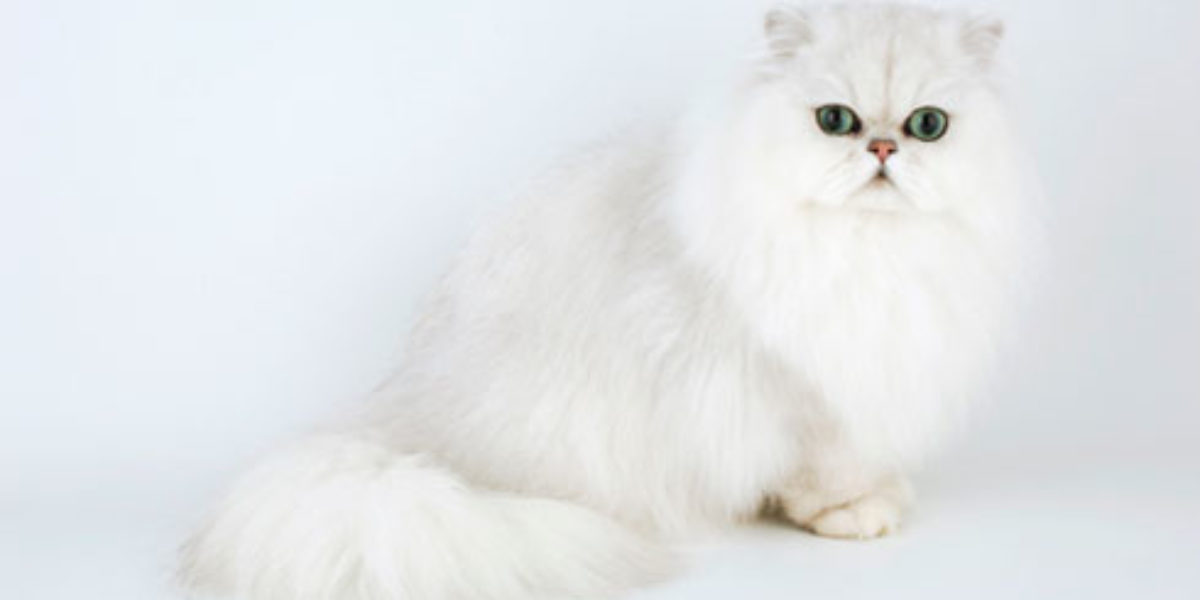Image supplied by Animal Photography
The Chinchilla is really a specific type of Persian with a white coat tipped with black, and green eyes. It has the same ultra thick undercoat and long coat which needs a great deal of attention to keep it from knotting up.
Health and welfare of cats with flattened faces (severe brachycephalia)
Cats that have been bred with extremely short, flat faces (called brachycephalic) undergo substantial and significant changes to the shape of the whole skull and the associated structures. There will be jaw deformities, which can lead to dental disease and potential problems with eating and drinking; there are usually small nostrils and a soft palate which is too long, which can lead to severe breathing problems; the tear ducts cannot follow their natural path and drain properly into the nose, so the eyes run constantly and cause tear-staining on the face and sometimes secondary sores. The flat nature of face also increases the chances of eye disease, and the jaw abnormalities will make grooming much more difficult.
The multiple problems that arise from breeding flat-faced cats means that we are definitely harming the cat by choosing to breed them in this way, and International Cat Care believes breed standards should be changed so that no cat should suffer as a result of conforming to human-imposed ideals.
Health and welfare issues – other
Persians (the Chinchilla is in the Persian or Longhair cat family) can carry a gene that leads to kidney failure (called autosomal dominant polycystic kidney disease) through the development of cysts in the kidney. Using genetic screening, breeders are now working to try to eradicate the problem – always ask the breeder to show the PKD certificates for the cats used to produce your kitten.
Cats (Felis catus) do not naturally have an ultra-long hair coat or such a dense undercoat. When bred in this way considerable effort is needed to keep the coat healthy and often both cats and owners become stressed because of the grooming required.
Important
We have limited the information about inherited disorders to those conditions that are known and proven to exist within a breed. For many breeders and many conditions, insufficient information may be available at this time to know whether any particular breed is necessarily free of any particular condition.
In general, pedigree breeds use a much smaller gene pool for breeding than domestic cats and therefore have a higher risk of developing inherited disorders. In addition, a number of ‘newer’ pedigree breeds are derived from matings between one or more ‘older’ breeds, and in these situations perpetuation of inherited problems that were seen in older breeds is likely within the newer breeds.
Thank you for visiting our website, we hope you have found our information useful.
All our advice is freely accessible to everyone, wherever you are in the world. However, as a charity, we need your support to enable us to keep delivering high quality and up to date information for everyone. Please consider making a contribution, big or small, to keep our content free, accurate and relevant.
Support International Cat Care from as little £3
Thank you.
Donate Now


